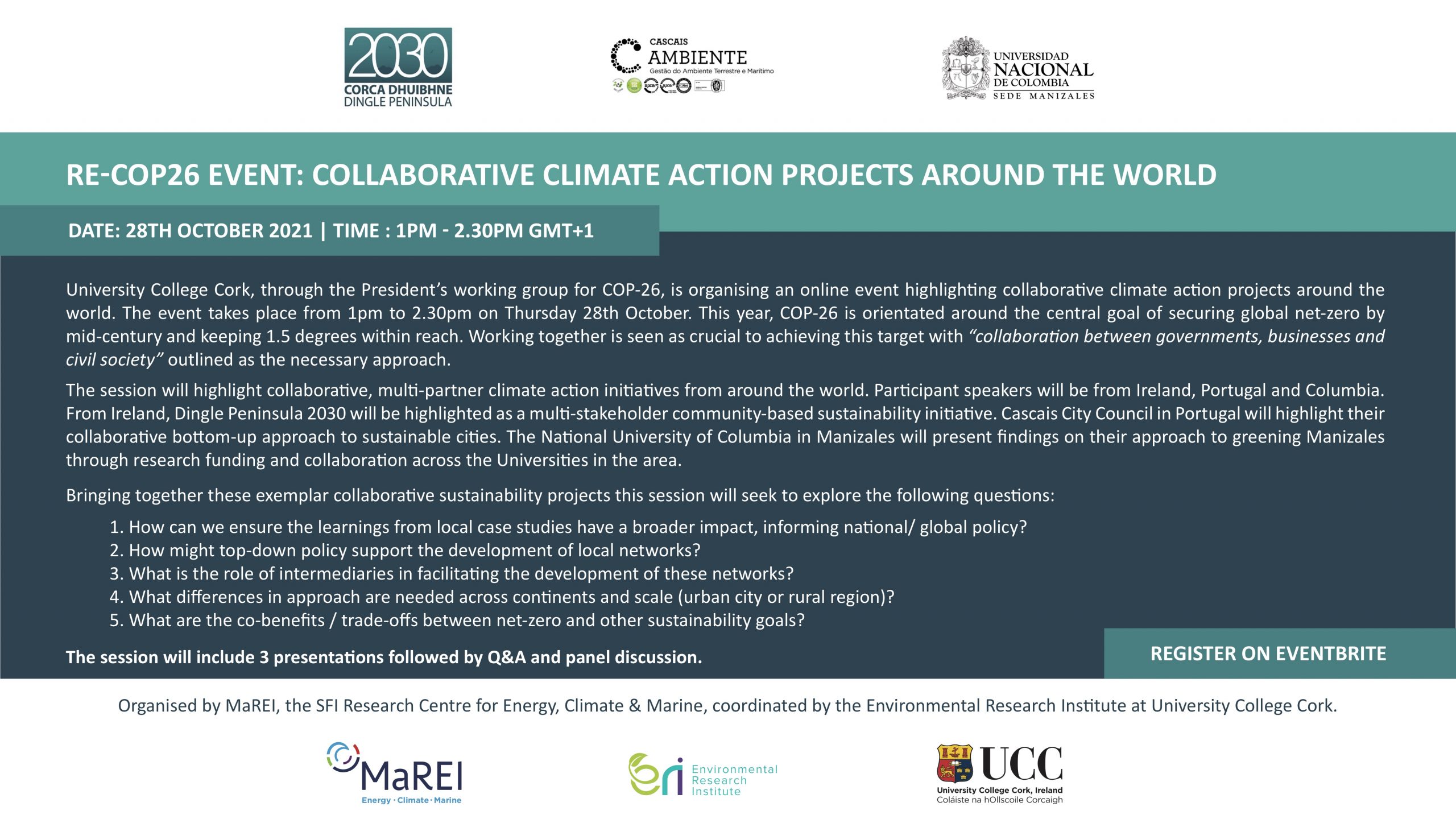
Pre-COP26 Event: Collaborative climate action projects from around the world
University College Cork, through the President’s working group for COP-26, is organising an online event highlighting collaborative climate action projects around the world. The event takes place from 1pm to 2.30pm on Thursday 28th October. This year, COP-26 is orientated around the central goal of securing global net-zero by mid-century and keeping 1.5 degrees within reach. Working together is seen as crucial to achieving this target with “collaboration between governments, businesses and civil society” outlined as the necessary approach.
If you missed the event you can watch it here:
The session will highlight collaborative, multi-partner climate action initiatives from around the world. Participant speakers will be from Ireland, Portugal and Columbia. From Ireland, Dingle Peninsula 2030 will be highlighted as a multi-stakeholder community-based sustainability initiative. Cascais City Council in Portugal will highlight their collaborative bottom-up approach to sustainable cities. The National University of Columbia in Manizales will present findings on their approach to greening Manizales through research funding and collaboration across the Universities in the area.
Bringing together these exemplar collaborative sustainability projects this session will seek to explore the following questions;
1. How can we ensure the learnings from local case studies have a broader impact, informing national/ global policy?
2. How might top-down policy support the development of local networks?
3. What is the role of intermediaries in facilitating the development of these networks?
4. What differences in approach are needed across continents and scale (urban city or rural region)?
5. What are the co-benefits / trade-offs between net-zero and other sustainability goals?
The session will include 3 presentations followed by Q&A and panel discussion.
Organised by MaREI, the SFI Research Centre for Energy, Climate & Marine, coordinated by the Environmental Research Institute at University College Cork.



